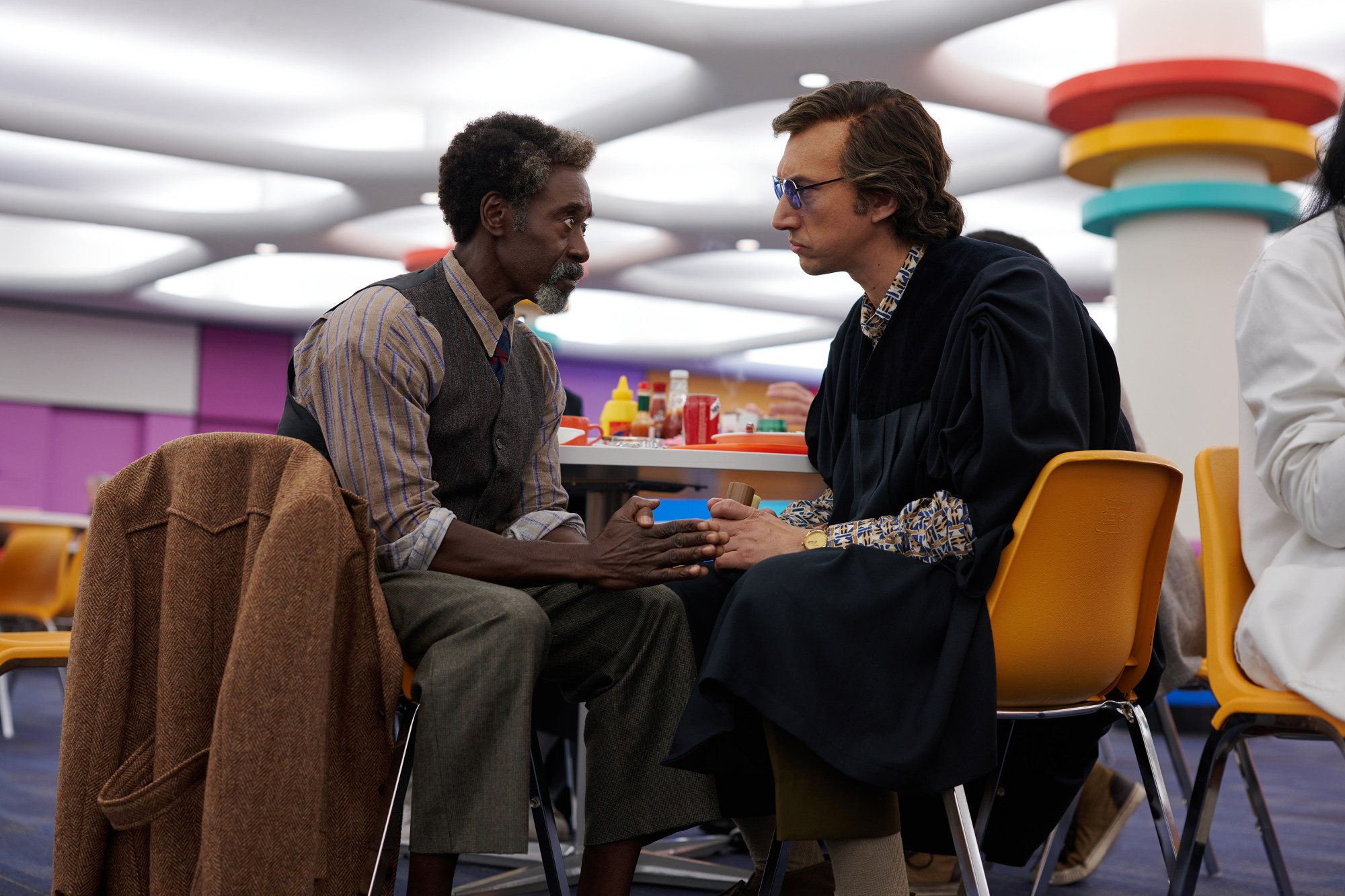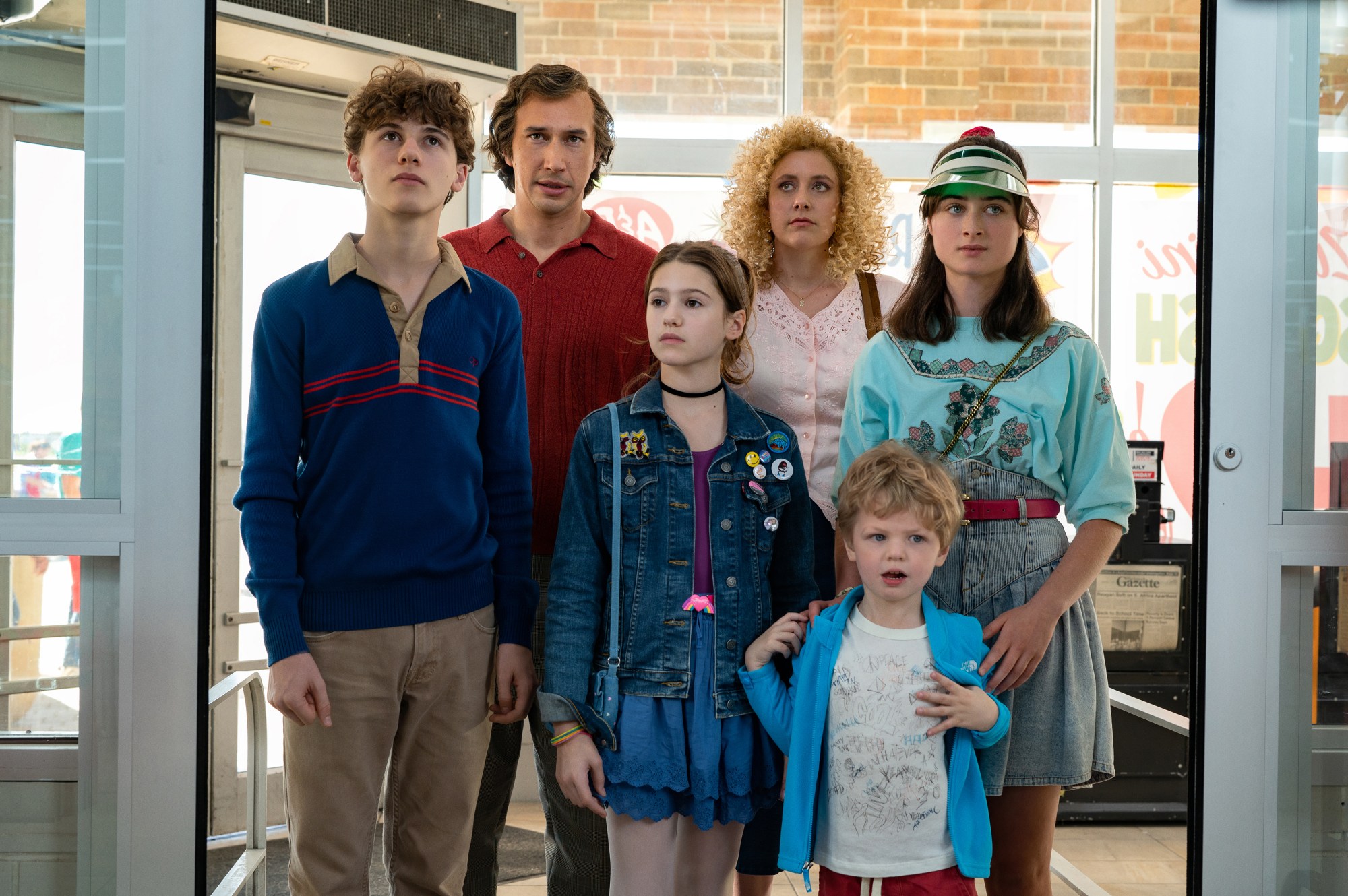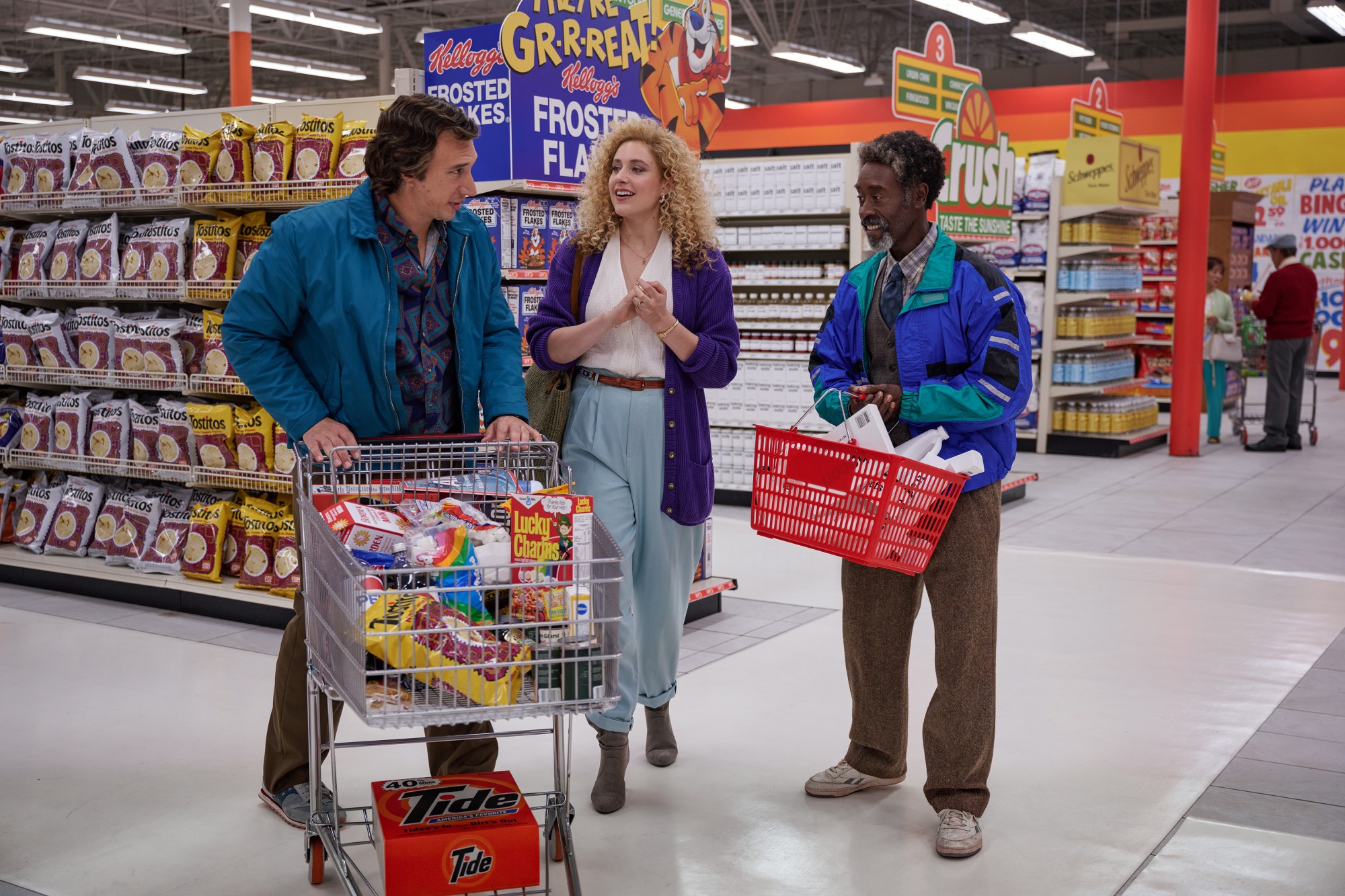There’s only one jump scare in White Noise. When Jack Gladney – a middle-aged professor of Hitler studies, played by Adam Driver – can’t sleep, he wanders through his house and sees something out of the corner of his eye: an old man who, at a glance, is like an ageing version of himself. When he returns to bed, a shape under the covers – one he first assumes is his deeply anxious wife Babette, played by Greta Gerwig – moves bolt upright, startling him awake. It turns out it’s all just a nightmare.
This is the closest White Noise gets to explicitly being a horror movie, but everything else going on in the world around Jack and Babette makes this 80s-set family comedy one of the most unsettling, panic attack-inducing and timely movies of 2022.
Noah Baumbach, known for his domestic dramas and mumblecore comedies like Marriage Story, Frances Ha and The Squid and the Whale, isn’t a name you’d traditionally associate with horror. But with White Noise, an adaptation of Don DeLillo’s award-winning novel of the same name, the director has taken his usual concerns of family, growing older and the uncertainty that surrounds those things, and imbued it with a deeply contemporary sense of anxiety that’s difficult to shake.

Whether it’s the continued resurgence of far-right politics, the looming spectre of the climate crisis or geopolitical warfare dominating headlines, there’s a lot to be worried about these days. White Noise captures a pre-internet world that’s oversaturated with the same kind of information, and shows how our exposure to it alters our brain chemistry.
White Noise presents a world in the throes of endless information, televised violence and climate disaster. These concerns feel familiar, not as a result of their decades-old source material but because they feel ripped from today’s headlines. Jack’s strange field of study, excavating the behaviour of Hitler and his leadership, captures the draw people have towards political strongmen and fascist leaders. Great fear and uncertainty guides that fascination, Jack argues. It’s a time that White Noise embodies with its own central moment of disaster: a toxic cloud of gas caused by a train crash, known as The Airborne Toxic Event.
The family White Noise follows is obsessed with car crashes and images of disaster (so much so that when Jack suggests watching a sitcom with his children instead of plane crash footage, he’s shouted down by all four of them), but they are terrified by the idea of death. Not only do Jack’s family refuse any kind of escapism, but even their conversations are affected by the constant, rapid stream of information that burdens them. Their dialogue is frantic and elaborate; full of overlapping and interruption.

Even the Event creates a new layer of overload, with endless radio broadcasts and contradictory suggestions. As the cloud creeps closer and closer to Jack and Babette’s hometown, it becomes an object primed for misinformation, with anyone who hears what the cloud might do to them immediately reacting with those same inaccurately-reported symptoms: if someone hears their palms will sweat, for example, then that’s what will happen. Once the information on the radio changes, the symptoms of listeners will change to match the new – but still false – signs of illness.
But more than that, it could be read as a kind of microcosm for climate catastrophe; it causes extreme weather conditions – a cataclysmic acid rain – and it becomes an existential anxiety for Jack, magnifying his fear of death. Noah himself described the novel as a “document telling [him] things about what was happening now”.
White Noise is maximalist in its anxiety. Everything is happening all at once, and as the cloud looms overhead, it seems like there’s no hope to cling on to. But that’s what makes the relationship between Jack and Babette so vital to the film. The pair have a morbid obsession with death, and neither wants to outlive the other. Early on in the film, Jack says that after losing her, all he would do is talk to walls and chairs, “in the suit I wore to your funeral, forever.” And as the strange story of White Noise unfolds, the different ways in which husband and wife try to deal with this unshakeable dread are revealed.
The tragedy of White Noise is that it shows these happy, if monotonous lives can’t last forever when they’re constantly on the precipice of some kind of cataclysmic change. In White Noise, these disasters are everywhere: in the spectre of fascism; in ubiquitous footage of disastrous crashes; in The Airborne Toxic Event. In contrast to this, hope feels precarious and uncertain.
There’s a temptation to become overwhelmed by this anxiety, for it to become all-consuming — which, in a way, it does, for both Jack and Babette. But, by keeping their relationship at its heart, a scripted material familiar to Noah Baumbach, his film is able to capture a meaningful antidote to the chaos that surrounds us.
‘White Noise’ is out on Netflix 30 December




